The All Time Top Ten Greatest Poems of Scotland
In their article called Jeelie Piece Song is among our best poems, The Sunday Times of Scotland reports that "listeners of BBC Radio Scotland" have chosen Scotland's favorite all time top 20 poems.
 These are included in the new book, edited by Stewart Conn, titled 100 Favourite Scottish Poems: The Nation's Favourites Including The Top 20 As Voted By BBC Scotland Listeners.
These are included in the new book, edited by Stewart Conn, titled 100 Favourite Scottish Poems: The Nation's Favourites Including The Top 20 As Voted By BBC Scotland Listeners. Presented below are the top ten as listed in the Sunday Times article, either the poems or links to them--all but number 10, which I could not find online. As with The Top 20 Greatest Banjo Paterson Poems of All Time from early last month, they are listed bottom to top.

by Liz Lochhead (b. 1947)
View of Scotland/Love Poem
(not available, here is an audio selection of her work)

from Vailima, Samoa
by Robert Louis Stevenson (1850-1894)
To S. R. Crockett (On receiving a Dedication)
Blows the wind to-day, and the sun and the rain are flying,
Blows the wind on the moors to-day and now,
Where about the graves of the martyrs the whaups are crying,
My heart remembers how!
Grey recumbent tombs of the dead in desert places,
Standing stones on the vacant wine-red moor,
Hills of sheep, and the howes of the silent vanished races,
And winds, austere and pure:
Be it granted me to behold you again in dying,
Hills of home! and to hear again the call;
Hear about the graves of the martyrs the peewees crying,
And hear no more at all.

by Marion Angus (1866-1946)
Mary's Song
I wad ha'e gi'en him my lips tae kiss,
Had I been his, had I been his;
Barley breid and elder wine,
Had I been his as he is mine.
The wanderin' bee it seeks the rose;
Tae the lochan's bosom the burnie goes;
The grey bird cries at evenin's fa',
'My luve, my fair one, come awa'.'
My beloved sall ha'e this he'rt tae break,
Reid, reid wine and the barley cake;
A he'rt tae break, an' a mou' tae kiss,
Tho' he be nae mine, as I am his.
(song in mp3, sheet music in pdf)

translated from the Scotts Gaelic version (just below) by Hugh MacDiarmid
by Hugh MacDiarmid (1892-1978)
The Watergaw
One wet, early evening in the sheep-shearing season
I saw that occasional, rare thing--
A broken shaft of a rainbow with its trembling light
Beyond the downpour of the rain
And I thought of the last, wild look you gave
Before you died.
The skylark's nest was dark and desolate,
My heart was too
But I have thought of that foolish light
Ever since then
And I think that perhaps at last I know
What your look meant then.
in the original Scottish vernacular
by Hugh MacDiarmid (1892-1978)
The Watergaw
Ae weet forenicht i' the yow-trummle
I saw yon antrin thing,
A watergaw wi' its chitterin' licht
Ayont the on-ding;
An' I thocht o' the last wild look ye gied
Afore ye deed!
There was nae reek i' the laverock's hoose
That nicht--an' nane i' mine;
But I hae thocht o' that foolish licht
Ever sin' syne;
An' I think that mebbe at last I ken
What your look meant then.

by Alastair Reid (b. 1926)
Scotland
It was a day peculiar to this piece of the planet,
when larks rose on long thin strings of singing
and the air shifted with the shimmer of actual angels.
Greenness entered the body. The grasses
shivered with presences, and sunlight
stayed like a halo on hair and heather and hills.
Walking into town, I saw, in a radiant raincoat,
the woman from the fish-shop. 'What a day it is!'
cried I, like a sunstruck madman.
And what did she have to say for it?
Her brow grew bleak, her ancestors raged in their graves
and she spoke with their ancient misery:
'We'll pay for it, we'll pay for it, we'll pay for it.'

an off-concrete Scottish fantasia
by Edwin Morgan (b. 1920)
Canedolia


translated from the Scotts Gaelic version (just below) by Sorley Maclean
by Sorley Maclean (1911-1996), a.k.a Somhairle MacGill-Eain
Hallaig
'Time, the deer, is in the Wood of Hallaig.'
The window is nailed and boarded
through which I saw the West
and my love is at the Burn of Hallaig,
a birch tree, and she has always been
between Inver and Milk Hollow,
here and there about Baile-chuirn:
she is a birch , a hazel,
a straight slender young rowan.
In Screapadal of my people,
where Norman and Big Hector were,
their daughters and their sons are a wood
going up beside the stream.
Proud tonight the pine cocks
crowing on the top of Cnoc an Ra,
straight their backs in the moonlight--
they are not the wood I love.
I will wait for the birch wood
until it comes up by the Cairn,
until the whole ridge from Beinn na Lice
will be under its shade.
If it does not, I will go down to Hallaig,
to the sabbath of the dead,
where the people are frequenting,
every single generation gone.
They are still in Hallaig,
Macleans and Macleods,
All who were there in the time of Mac Gille Chaluim:
the dead have been seen alive--
'Time, the deer, is in the Wood of Hallaig.'
the men lying on the green
at the end of every house that was,
the girls a wood of birches,
straight their backs, bent their heads.
Between the Leac and Fearns
the road is under mild moss
and the girls in silent bands
go to Clachan as in the beginning.
And return from Clachan,
from Suisnish and the land of the living;
Each one young and light stepping,
without the heartbreak of the tale.
From the Burn of Fearns to the raised beach
that is clear in the mystery of the hills,
there is only the congregation of the girls
keeping up the endless walk,
coming back to Hallaig in the evening,
in the dumb living twilight,
filling the steep slopes,
their laughter in my ears a mist,
and their beauty a film on my heart
before the dimness comes on the kyles,
and when the sun goes down behind Dun Cana
a vehement bullet will come from the gun of Love;
and will strike the deer that goes dizzily,
sniffing at the grass-grown ruined homes;
his eye will freeze in the wood;
his blood will not be traced while I live.
in the original Scotts Gaelic
by Sorley Maclean (1911-1996), a.k.a Somhairle MacGill-Eain
Hallaig
'Tha tìm, am fiadh, an Coille Hallaig'
Tha bùird is tàirnean air an uinneig
trom faca mi an Aird an Iar
's tha mo ghaol aig Allt Hallaig
'na craoibh bheithe, 's bha i riamh
eadar an t-Inbhir 's Poll a' Bhainne,
thall 's a-bhos mu Bhaile Chùirn:
tha i 'na beithe, 'na calltainn,
'na caorann dhìreach sheang ùr.
Ann an Sgreapadal mo chinnidh,
far robh Tarmad 's Eachann Mòr,
tha 'n nigheanan 's am mic 'nan coille
a' gabhail suas ri taobh an lòin.
Uaibhreach a-nochd na coilich ghiuthais
a' gairm air mullach Cnoc an Rà,
dìreach an druim ris a' ghealaich--
chan iadsan coille mo ghràidh.
Fuirichidh mi ris a' bheithe
gus an tig i mach an Càrn,
gus am bi am bearradh uile
o Bheinn na Lice fa sgàil.
Mura tig 's ann theàrnas mi a Hallaig,
a dh'ionnsaigh sàbaid nam marbh,
far a bheil an sluagh a' tathaich,
gach aon ghinealach a dh'fhalbh.
Tha iad fhathast ann a Hallaig,
Clann Ghill-Eain 's Clann MhicLeòid,
na bh' ann ri linn Mhic Ghille Chaluim:
chunnacas na mairbh beò--
'Tha tìm, am fiadh, an Coille Hallaig'
na fir 'nan laighe air an lèanaig
aig ceann gach taighe a bh' ann,
na h-igheanan 'nan coille bheithe,
dìreach an druim, crom an ceann.
Eadar an Leac is na Feàrnaibh
tha 'n rathad mòr fo chòinnich chiùin,
's na h-igheanan 'nam badan sàmhach
a' dol a Chlachan mar o thus.
Agus a' tilleadh às a' Chlachan,
à Suidhisnis 's à tìr nam beò;
a chuile tè òg uallach,
gun bhristeadh cridhe an sgeòil.
O Allt na Feàrnaibh gus an fhaoilinn
tha soilleir an dìomhaireachd nam beann
chan eil ach coimhthional nan nighean
a' cumail na coiseachd gun cheann.
a' tilleadh a Hallaig anns an fheasgar,
anns a' chamhanaich bhalbh bheò,
a' lìonadh nan leathadan casa,
an gàireachdaich 'nam chluais 'na ceò,
's am bòidhche 'na sgleò air mo chridhe
mun tig an ciaradh air na caoil,
's nuair theàrnas grian air cùl Dhùn Cana
thig peileir dian à gunna Ghaoil;
's buailear am fiadh a tha 'na thuaineal
a' snòtach nan làraichean feòir;
thig reothadh air a shùl sa choille:
chan fhaighear lorg air fhuil rim bheò.

by Robert Burns (1759-1796)
Is There, for Honest Poverty
(or the song A Man's a Man for A'That)
I.
Is there, for honest poverty,
That hangs his head, and a' that?
The coward-slave, we pass him by,
We dare be poor for a' that!
For a' that, and a' that,
Our toils obscure, and a' that;
The rank is but the guinea's stamp,
The man's the gowd for a' that!
II.
What tho' on hamely fare we dine,
Wear hoddin gray, and a' that;
Gie fools their silks, and knaves their wine,
A man's a man, for a' that!
For a' that, and a' that,
Their tinsel show, and a' that;
The honest man, though e'er sae poor,
Is king o' men for a' that!
III.
Ye see yon birkie, ca'd--a lord,
Wha struts, and stares, and a' that;
Though hundreds worship at his word,
He's but a coof for a' that:
For a' that, and a' that,
His riband, star, and a' that,
The man of independent mind,
He looks and laughs at a' that.
IV.
A king can make a belted knight,
A marquis, duke, and a' that,
But an honest man's aboon his might,
Guid faith, he maunna fa' that!
For a' that, and a' that,
Their dignities, and a' that,
The pith o' sense, and pride o' worth,
Are higher ranks than a' that.
V.
Then let us pray that come it may--
As come it will for a' that--
That sense and worth, o'er a' the earth,
May bear the gree, and a' that;
For a' that, and a' that,
It's comin' yet for a' that,
That man to man, the warld o'er,
Shall brothers be for a' that!

by Violet Jacob (1863-1846)
The Wild Geese
(or the song Norland Wind)
"O tell me what was on yer road, ye roarin' norlan' Wind,
As ye cam' blawin' frae the land that's niver frae my mind?
My feet they traivel England, but I'm dee'in for the north."
"My man, I heard the siller tides rin up the Firth o' Forth."
"Aye, Wind, I ken them weel eneuch, and fine they fa' an' rise,
And fain I'd feel the creepin' mist on yonder shore that lies,
But tell me, ere ye passed them by, what saw ye on the way?"
"My man, I rocked the rovin' gulls that sail abune the Tay."
"But saw ye naething, leein' Wind, afore ye cam' to Fife?
There's muckle lyin' 'yont the Tay that's mair to me nor life."
"My man, I swept the Angus braes ye hae'na trod for years."
"O Wind, forgi'e a hameless loon that canna see for tears!"
"And far abune the Angus straths I saw the wild geese flee,
A lang, lang skein o' beatin' wings, wi' their heids towards the sea,
And aye their cryin' voices trailed ahint them on the air--"
"O Wind, hae maircy, haud yer whisht, for I daurna listen mair!"

"Of Brownyis and of Bogillis full is this Buke." --Gawin Douglas.
A Tale
by Robert Burns (1759-1796)
Tam O'Shanter
When chapman billies leave the street,
And drouthy neebors neebors meet,
As market-days are wearing late,
An' folk begin to tak' the gate;
While we sit bousing at the nappy,
An' gettin' fou and unco happy,
We think na on the lang Scots miles,
The mosses, waters, slaps, and stiles,
That lie between us and our hame,
Where sits our sulky sullen dame,
Gathering her brows like gathering storm,
Nursing her wrath to keep it warm.
This truth fand honest Tam O' Shanter,
As he frae Ayr ae night did canter,
(Auld Ayr, wham ne'er a town surpasses,
For honest men and bonny lasses.)
O Tam! hadst thou but been sae wise,
As ta'en thy ain wife Kate's advice!
She tauld thee weel thou was a skellum,
A blethering, blustering, drunken blellum;
That frae November till October,
Ae market-day thou wasna sober;
That ilka melder, wi' the miller,
Thou sat as lang as thou had siller;
That ev'ry naig was ca'd a shoe on,
The smith and thee gat roaring fou on;
That at the Lord's house, ev'n on Sunday,
Thou drank wi' Kirton Jean till Monday.
She prophesy'd, that late or soon,
Thou would be found deep drown'd in Doon;
Or catch'd wi' warlocks in the mirk,
By Alloway's auld haunted kirk.
Ah, gentle dames! it gars me greet,
To think how mony counsels sweet,
How mony lengthen'd sage advices,
The husband frae the wife despises!
But to our tale:--Ae market night,
Tam had got planted unco right;
Fast by an ingle bleezing finely,
Wi' reaming swats, that drank divinely;
And at his elbow, Souter Johnny,
His ancient, trusty, drouthy crony;
Tam lo'ed him like a vera brither;
They had been fou' for weeks thegither!
The night drave on wi' sangs an' clatter;
And ay the ale was growing better:
The landlady and Tam grew gracious;
Wi' favors secret, sweet, and precious;
The Souter tauld his queerest stories;
The landlord's laugh was ready chorus:
The storm without might rair and rustle--
Tam did na mind the storm a whistle.
Care, mad to see a man sae happy,
E'en drown'd himself amang the nappy!
As bees flee hame wi' lades o' treasure,
The minutes wing'd their way wi' pleasure:
Kings may be blest, but Tam was glorious,
O'er a' the ills o' life victorious.
But pleasures are like poppies spread,
You seize the flow'r, its bloom is shed;
Or like the snow falls in the river,
A moment white--then melts for ever;
Or like the borealis race,
That flit ere you can point their place;
Or like the rainbow's lovely form
Evanishing amid the storm.
Nae man can tether time or tide;
The hour approaches Tam maun ride;
That hour, o' night's black arch the key-stane,
That dreary hour he mounts his beast in;
And sic a night he taks the road in
As ne'er poor sinner was abroad in.
The wind blew as 'twad blawn its last;
The rattling show'rs rose on the blast;
The speedy gleams the darkness swallow'd;
Loud, deep, and lang the thunder bellow'd:
That night, a child might understand,
The de'il had business on his hand.
Weel mounted on his gray mare, Meg,
A better never lifted leg,
Tam skelpit on thro' dub and mire,
Despising wind, and rain, and fire;
Whiles holding fast his guid blue bonnet;
Whiles crooning o'er some auld Scots sonnet;
Whiles glow'ring round wi' prudent cares,
Lest bogles catch him unawares;
Kirk-Alloway was drawing nigh,
Whare ghaists and houlets nightly cry.--
By this time he was cross the foord,
Whare in the snaw the chapman smoor'd;
And past the birks and meikle stane,
Where drunken Charlie brak's neck-bane;
And thro' the whins, and by the cairn,
Where hunters fand the murder'd bairn;
And near the thorn, aboon the well,
Where Mungo's mither hang'd hersel'.
Before him Doon pours all his floods;
The doubling storm roars thro' the woods;
The lightnings flash from pole to pole;
Near and more the thunders roll;
When, glimmering thro' the groaning trees,
Kirk-Alloway seem'd in a bleeze;
Thro' ilka bore the beams were glancing;
And loud resounded mirth and dancing.
Inspiring, bold John Barleycorn!
What dangers thou canst make us scorn!
Wi' tippenny, we fear nae evil;
Wi' usquabae we'll face the devil!
The swats sae ream'd in Tammie's noddle,
Fair play, he car'd nae deils a boddle.
But Maggie stood right sair astonish'd,
'Till, by the heel and hand admonish'd,
She ventur'd forward on the light;
And wow! Tam saw an unco sight!
Warlocks and witches in a dance;
Nae cotillion brent new frae France,
But hornpipes, jigs, strathspeys, and reels,
Put life and mettle in their heels:
A winnock-bunker in the east,
There sat auld Nick, in shape o' beast;
A towzie tyke, black, grim, and large,
To gie them music was his charge;
He screw'd the pipes and gart them skirl,
Till roof and rafters a' did dirl.--
Coffins stood round, like open presses;
That shaw'd the dead in their last dresses;
And by some devilish cantrip slight
Each in its cauld hand held a light--
By which heroic Tam was able
To note upon the haly table,
A murderer's banes in gibbet airns;
Twa span-lang, wee, unchristen'd bairns;
A thief, new-cutted frae a rape,
Wi' his last gasp his gab did gape;
Five tomahawks, wi' bluid red-rusted;
Five scimitars, wi' murder crusted;
A garter, which a babe had strangled;
A knife, a father's throat had mangled,
Whom his ain son o' life bereft,
The gray hairs yet stack to the heft:
Wi' mair o' horrible and awfu',
Which ev'n to name would be unlawfu'.
As Tammie glowr'd, amaz'd, and curious,
The mirth and fun grew fast and furious:
The piper loud and louder blew;
The dancers quick and quicker flew;
They reel'd, they set, they cross'd, they cleekit,
'Till ilka carlin swat and reekit,
And coost her duddies to the wark,
And linket at it in her sark!
Now Tam, O Tam! had thae been queans
A' plump and strapping, in their teens;
Their sarks, instead o' creeshie flannen,
Been snaw-white seventeen hunder linen,
Thir breeks o' mine, my only pair,
That ance were plush, o' guid blue hair,
I wad hae gi'en them off my hurdies,
For ae blink o' the bonnie burdies!
But wither'd beldams, auld and droll,
Rigwoodie hags, wad spean a foal,
Lowping an' flinging on a cummock,
I wonder didna turn thy stomach.
But Tam kenn'd what was what fu' brawlie,
There was a winsome wench and walie,
That night enlisted in the core,
(Lang after kenn'd on Carrick shore;
For mony a beast to dead she shot,
And perish'd mony a bonnie boat,
And shook baith meikle corn and bear,
And kept the country-side in fear.)
Her cutty sark, o' Paisley harn,
That, while a lassie, she had worn,
In longitude tho' sorely scanty,
It was her best, and she was vauntie--
Ah! little kenn'd the reverend grannie,
That sark she coft for her wee Nannie,
Wi' twa pund Scots ('twas a' her riches),
Wad ever grac'd a dance of witches!
But here my muse her wing maun cour;
Sic flights are far beyond her pow'r;
To sing how Nannie lap and flang,
(A souple jade she was and strung,)
And how Tam stood, like ane bewitch'd;
And thought his very een enrich'd;
Even Satan glowr'd, and fidg'd fu' fain,
And hotch'd and blew wi' might and main:
'Till first ae caper, syne anither,
Tam tint his reason a' thegither,
And roars out, "Weel done, Cutty-sark!"
And in an instant all was dark:
And scarcely had he Maggie rallied,
When out the hellish legion sallied.
As bees bizz out wi' angry fyke,
When plundering herds assail their byke;
As open pussie's mortal foes,
When, pop! she starts before their nose;
As eager runs the market-crowd,
When "Catch the thief!" resounds aloud;
So Maggie runs, the witches follow,
Wi' mony an eldritch screech and hollow.
Ah, Tam! Ah, Tam! thou'll get thy fairin'!
In hell they'll roast thee like a herrin'!
In vain thy Kate awaits thy comin'!
Kate soon will be a woefu' woman!
Now do thy speedy utmost, Meg,
And win the key-stane of the brig;
There at them thou thy tail may toss,
A running stream they darena cross!
But ere the key-stane she could make,
The fient a tail she had to shake!
For Nannie, far before the rest,
Hard upon noble Maggie prest,
And flew at Tam wi' furious ettle;
But little wist she Maggie's mettle--
Ae spring brought off her master hale,
But left behind her ain gray tail:
The carlin claught her by the rump,
And left poor Maggie scarce a stump.
Now, wha this tale o' truth shall read,
Ilk man and mother's son, take heed:
Whene'er to drink you are inclin'd,
Or cutty-sarks run in your mind,
Think! ye may buy the joys o'er dear--
Remember Tam O' Shanter's mare.


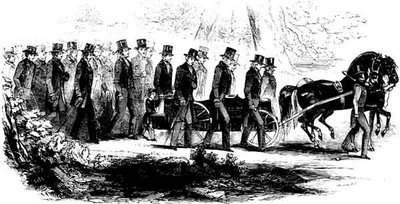
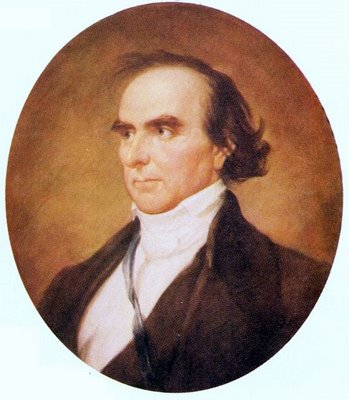
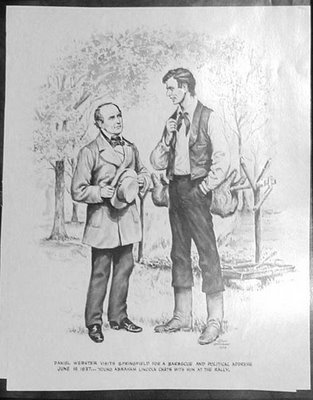



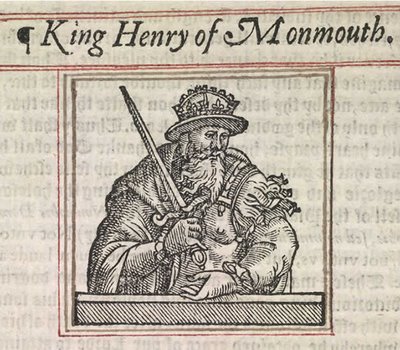


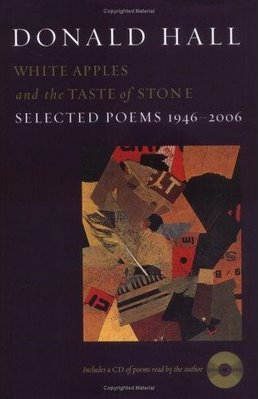


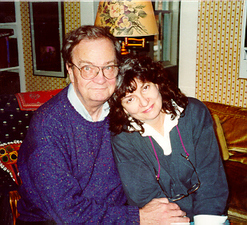
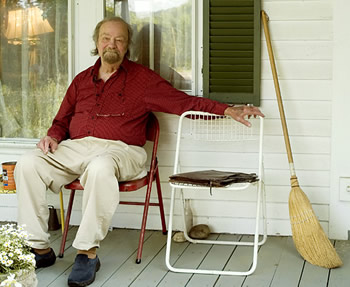
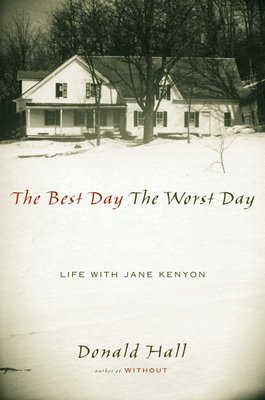

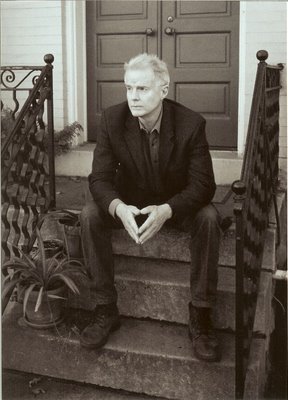



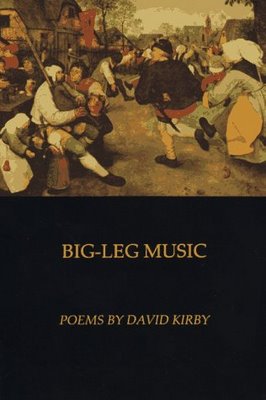
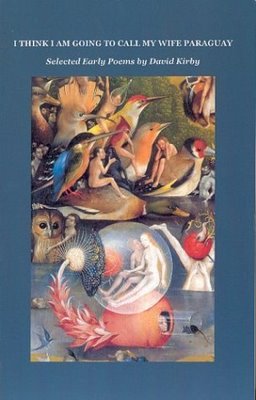


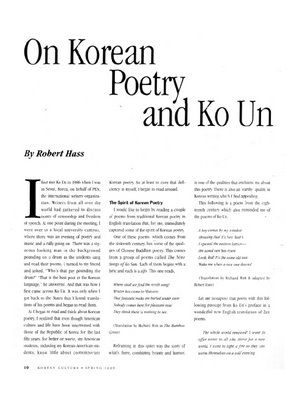

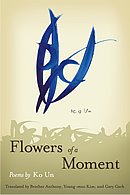


+Adam+and+Eve+Driven+from+the+Garden.jpg)